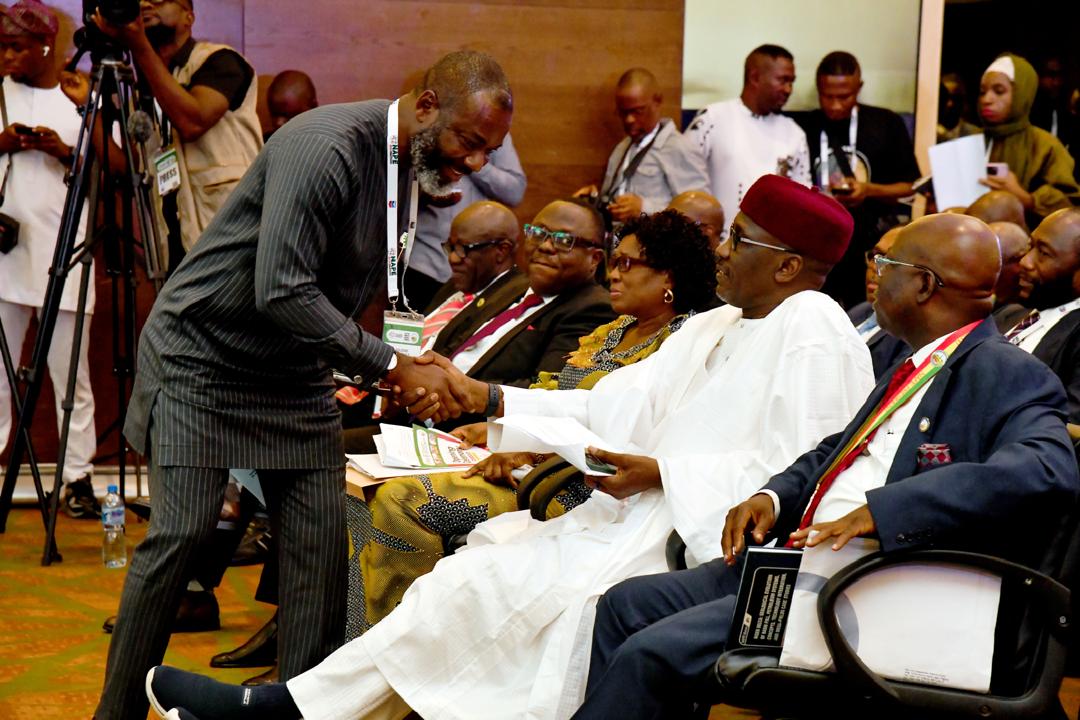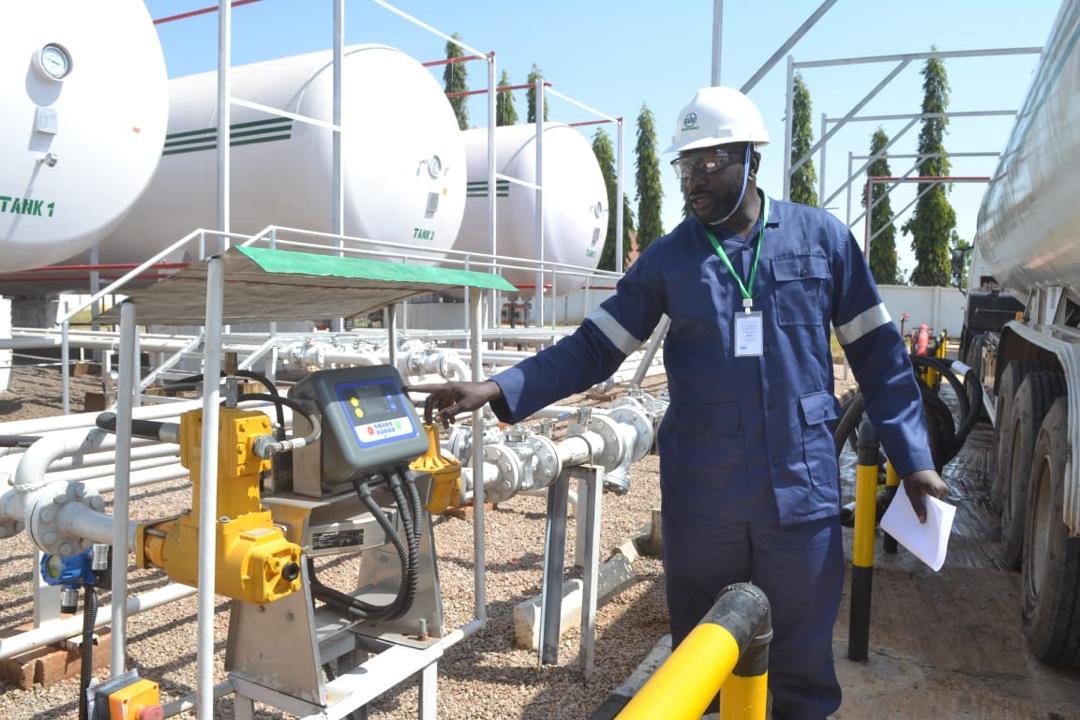Energy
IFC and Société Générale Trade Facility Supports Energy Imports in Cote d’Ivoire
WASHINGTON – IFC, a member of the World Bank Group, and Société Générale have co-arranged a $300 million facility for Cote d’Ivoire’s only oil refinery that will help guarantee a steady supply of critical energy imports for the country and its landlocked neighbors.
IFC and Société Générale will each participate with up to $100 million in the facility for Societe Ivoirienne de Raffinage (SIR), which supplies effectively all of the refined petroleum products in Cote d’Ivoire as well as Burkina Faso, Mali, and other countries in western Africa. BNP Paribas and Standard Chartered Bank will also participate in the financing.
The structured trade facility will finance around $2 billion of oil imports over the next two years helping prevent interruptions in the fuel supply that could have a negative effect on Côte d’Ivoire and its redevelopment.
By helping stabilize the regional energy supply, IFC and its partners believe this facility may help mitigate price spikes that drive up costs for both businesses and households and often have the most adverse effects on the poorest. The financing will also help SIR to regain access to the international financial markets.
“SIR’s production touches the lives of millions of people by providing them with energy for their homes and businesses and gasoline for their trucks to get products to market,” said Georgina Baker, IFC Director for Global Trade and Supply Chain Solutions. “This facility will ensure that the company continues to provide the refined fuel essential for day-to-day life and commerce in West Africa.”
“Société Générale is delighted by yet another example of cooperation in Africa with our partners at the IFC in this new key financing line for the SIR, a long standing relationship of the Group through Société Générale de Banques en Côte d’Ivoire and Société Générale Corporate & Investment Banking,” said Federico Turegano, Global Head of the Natural Resources and Energy Financing group at Société Générale Corporate & Investment Banking.
IFC will also work with the refinery to further review its environmental standards in line with international best practices, to help restore the strong performance it enjoyed before the conflict.
The initiative is an evolution of IFC’s Critical Commodity Finance Program, launched in 2012 to facilitate imports of energy-related goods in the world’s poorest countries. Total commodity trade supported by the CCFP facilities has exceeded $9 billion, with 60 percent reaching Africa. A similar facility signed last year in Mauritania has financed 500,000 tons of fuel imports.
Energy
NCDMB Seeks Industry-wide Support for FDIs, NOGOF, Others, To Ramp Up Crude Output, Energy Security

As the 42nd Annual International Conference and Exhibition of the Nigerian Association of Petroleum Explorationists (NAPE) got underway in Lagos on Monday, the Nigerian Content Development and Monitoring Board (NCDMB) has canvassed industry-wide support for initiatives that would reverse negative trends in Nigeria’s energy sector.
The Executive Secretary, NCDMB, Engr. Felix Omatsola Ogbe, made the assertion in a paper entitled “Resolving the Nigerian Energy Trilemma: Energy Security, Sustained Growth, and Affordability”.
He identified “alarming scale of pipeline vandalism and theft of crude oil” as the biggest threats to Nigeria’s energy security, noting that major oil and gas projects are required as well as a robust security strategy based on mutually beneficial collaboration with host communities.
To achieve the above objectives, the Board has undertaken to work with stakeholders in the industry to dedicate one week in every calendar year to signing Final Investment Decisions (FIDs) on new projects, as prospective investors could be motivated to act expeditiously to meet agreed-upon deadlines and regulators are similarly encouraged.
Engr. Ogbe noted that FDIs would “catalyze new projects in the Nigerian oil and gas industry,” and that fruitful collaboration amongst stakeholders and NCDMB would actualize the intentions of the Presidential Directives rolled out in March 2024 by The Presidency, and thus “fast-track the contracting cycle and incentivize investments in our sector.”
The NCDMB boss, who was represented by the General Manager, Corporate Communications and Zonal Coordination, Esueme Dan Kikile, Esq., suggested that the FDI Week be incorporated into any of the major oil, gas and energy conferences held in the country.
According to him, the Board holds a similar biennial event called Nigerian Oil and Gas Opportunity Fair (NOGOF), which is attended by all the international and indigenous operating companies to share awareness of opportunities and projects to be executed.
On the Board’s strategy to create a safe and secure operating environment for oil and gas companies and thus eliminate the huge costs associated with vandalism and attacks on personnel and installations, the Executive Secretary disclosed that NCDMB has introduced a new policy known as “Back to the Creeks Initiative.”
According to him, “We are convinced at the Board that the incessant tampering with crude oil pipelines and hostilities in oil-producing communities have a huge impact on energy security,” and that the new initiative is geared towards curtailing incidences of disruptions of oil industry operations through targeted interventions. These include execution of corporate social responsibility projects in communities, provision of affordable finance to local contractors, upgrade of basic educational facilities in villages and communities, building the capacity of teachers and improving the infrastructure at that level.
The initiative, whose details would soon be publicized, is expected to create a stakeholder feeling in host communities and make them view industry assets around them as facilities that are bound up with their socio-economic well-being.
Such an orientation would translate into safety of assets, increased crude oil production, drastically reduced security costs and more favourable pricing of petroleum products, he added.
Energy
Shell Will Continue To Power Progress On Energy Security In Nigeria – Okunbor

Shell will continue to power progress in the drive for energy security in Nigeria through its businesses in the Upstream, Midstream and Downstream and Renewables sectors.
This view was shared by the Country Chair, Shell Companies in Nigeria and Managing Director, The Shell Petroleum Development Company of Nigeria Ltd (SPDC,) Osagie Okunbor in Lagos, on Tuesday.
It was contained in remarks delivered on his behalf by Exploration Manager Gogo Eneyok at the opening of the 42nd Annual International Conference and Exhibition of the Nigerian Association of Petroleum Explorationists (NAPE).
Okunbor maintained that the range of the Shell businesses were integrated across the energy value chain and working hard to address the challenges as captured in the theme of the event: “Resolving the Nigeria Energy Trilemma: Energy Security, Sustainable Growth & Affordability.”
ALSO READ: How Oil Cabals Crippled Govt Refineries, Now Scheming Against Dangote Refinery – Pastor Adeboye
In addition to the SPDC, the other Shell businesses in Nigeria include, Shell Nigeria Exploration and Production Company Limited (SNEPCo,) Shell Nigeria Gas (SNG,) Daystar Power and All On as well as Nigeria Liquefied Natural Gas (NLNG,) in which Shell has 25.6% interests.
Okunbor stated, “Shell, working with government, regulators and stakeholders, is actively participating in finding a pathway through the energy trilemma. We are focused on generating maximum value and cash to power the country.”
Referring to efforts towards low and zero-carbon products to market, he said, “Shell is deploying latest technologies in reducing emission in our operations and we are well on track to meet our forecasted Green House Gas reduction targets.
”SNG is also increasing domestic gas delivery through its distribution network of 150 kilometers in Nigeria while Daystar and All On are giving individuals and communities access to cleaner and affordable energy.
Okunbor however, pointed out that for these and other efforts and investments to achieve the desired results, government had to improve the regulatory environment with continuous improvement in the provisions in the Petroleum Industry Act. “The menace of crude theft and illegal refining must also be tackled to safeguard the nation’s resources and protect the environment,” he added.
The opening ceremony of the NAPE conference featured a tour of exhibition stand by the executive members of NAPE. He and other dignitaries were conducted round the Shell stand by Magdalene Umoh, a Senior Production Systems Engineer.
She gave an insight to the milestones of Shell businesses in Nigeria including social investments and development of Nigerian contractors and vendors. The Shell stand is complemented by a well-staffed medical team which is attending to participants and visitors for the duration of the four-day conference.
Energy
NCDMB, Butane Energy, Boost LPG Supply With Commissioning Of Kaduna Plant

The Nigerian Content Development and Monitoring Board (NCDMB) and Butane Energy Limited have taken a significant step forward in their collective drive to make liquefied petroleum gas (LPG) a widely accessible, cleaner, and more cost-effective fuel option for cooking, with the commissioning of a 180-metric-tonne LPG Filling Plant in Kaduna, Kaduna State.
Commissioned on Friday, the Filling Plant, is the second after the 100MT LPG Storage and Bottling Plant in Kabukawa Layout, Katsina, Katsina State, in 2021, in keeping with a joint venture to establish five of such facilities in Northern Nigeria with a combined storage capacity of 1,000MT.
Biztellers reports that the Kano LPG Storage and Bottling Plant in Kano State is slated for commissioning in the first quarter of 2025, while construction work on another in Bauchi is at an advanced stage, with Abuja next in line.
ALSO READ: FIRS Names Dangote Group Most Tax Complaint Business
The Executive Secretary of NCDMB, Engr. Felix Omatsola Ogbe, represented by the Director, Monitoring and Evaluation of NCDMB, Alhaji Abdulmalik Halilu, expressed satisfaction with the impressive strides of Butane Energy Ltd.
He pointed out that NCDMB was motivated to enter into equity partnership with the indigenous LPG storage, trading and marketing company after the latter presented “a [bankable] business plan aimed at enhancing gas penetration in northern Nigeria.”
He explained that the Board acted in line with its statutory mandate to catalyse in-country capacity development through equity funding.
NCDMD, he noted further, was also interested in job creation through such projects, as there were clear possibilities for employment into technical and managerial cadres as operations progressed.
According to him, no fewer than 200 Nigerians gained employment, and there was the added benefit of local content growth.
Equally significant to the NCDMB was the consideration that the project was in alignment with Federal Government’s expressed commitment to net-zero emissions by 2026, and the campaign for cleaner alternative to kerosene and firewood as cooking fuel.
In his own remarks, the Chairman, Butane Energy Ltd, Alhaji Isa Inuwa Muhammed, stated that NCDMB is a co-owner of the company, and expressed gratitude to the Management of the NCDMB for the confidence reposed in his company, particularly in its vision and business approach.
According to the Chairman, the relationship between the Board and Butane is based on trust, and that the success thus far would greatly reinforce the partnership.
Established in 2017 as a player in LPG storage and marketing, Butane Energy Ltd has massive distribution assets in northern Nigeria, and is deliberate in its corporate objective to make the fuel accessible to every part of the region.
The LPG Filling Plant is part of NCDMB’s strategic third-party investments aimed at supporting in-country capacity development, reducing reliance on traditional fuels, fostering sustainability and building a greener future for Nigeria.











